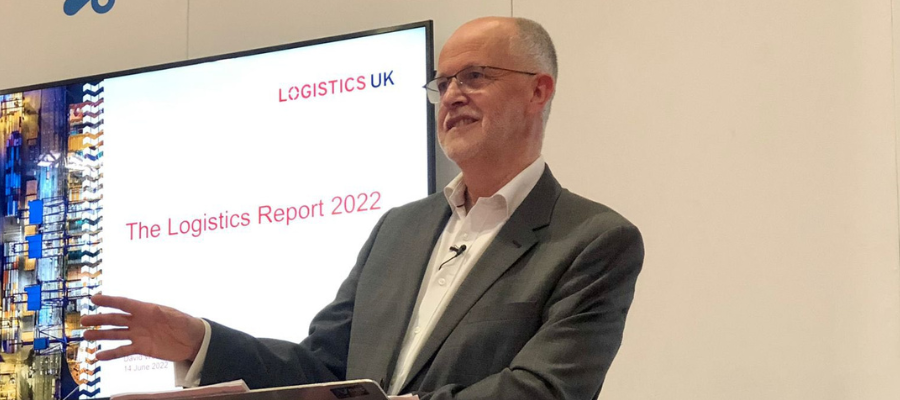🕒 Article read time: 2 minutes
Uncertain conditions continue to put pressure on supply chains, says Logistics UK chief

The disruption to global supply chains, which began at the start of the COVID-19 pandemic and had a significant knock-on effect on businesses around the globe, looks set to continue throughout 2022, according to Logistics UK’s recently published Logistics Report.
The report has found that global and local factors have caused issues for all elements of the supply chain, with issues such as disruption to the supply of shipping containers, a shortage of HGV drivers and a lack of semi-conductor microchips all having an impact on the way that goods are moved around the world. But the industry has reacted to these challenges with typical flexibility and pragmatism to continue delivering for the UK’s businesses and consumers.
“The past two years have been a period like no other for our supply chain,” said David Wells, Chief Executive, Logistics UK, “with disruptions forcing constant changes in the ways goods move both domestically and internationally. It is testament to the dedication of staff right across the supply chain that solutions have been provided for problem after problem with minimal disruption – from the displacement of shipping containers to a lack of HGV drivers to move goods – and our highly interconnected supply chain has remained largely intact.
“At the same time, our members have been facing significant increases in fuel and freight costs. Diesel prices rose by 22% in the year to 31 December 2021, while freight rates have also increased as demand returns following the pandemic, accompanied by wage inflation. With average fuel prices reaching the highest level on record, and rising inflation, there has been an unsustainable burden on logistics businesses which operate traditionally on very narrow margins of around 1%.”
There are some signs for optimism, however, that the industry is starting to recover.
Wells continued: “The government’s decision to cut Fuel Duty in the March 2022 Spring Statement by five pence per litre will result in an average saving of over £2,000 per year per 44-tonne truck. However, with other operational costs rising sharply thanks to rising inflation, and the cost at the pumps still rising, this cost saving could be lost to operators in the short to medium term.
“In addition, following an acute shortage of skilled drivers, increased test availability for vocational drivers, as identified by the Department for Transport, is beginning to relieve the worst of the problem and ensure that a lack of drivers is no barrier to business growth and recovery. The data shows that the number of people undertaking practical HGV tests has grown by 53.5% in Q4 2021 compared with Q4 2019 and the industry is committed to providing more access to training and testing for all those keen to join the profession and to retain existing staff.
“The signs of recovery are there, as the Logistics Report indicates, but there is still much work to be done and ongoing economic pressures could easily stall any significant growth forecast. Following the impacts of COVID-19, it is clear that supply chains will need to change the way they work. Cost effective and efficient shipping is no longer guaranteed under the previous working model and the industry’s reliance on just-in-time management systems will need to shift to using greater storage capacity. However, having seen how far we have come, in just two years, I am confident that the logistics sector is set to lead the economic recovery in the months ahead.”
For a copy of the Logistics Report 2022, which covers all factors affecting the supply chain, including employment, connectivity and sustainability, available to Logistics UK buyer members, please visit the link below.
*www.logistics.org.uk/logisticsreport
Published On: 16/06/2022 16:00:44

Comments Section
If you are a Logistics UK member login to add comments.